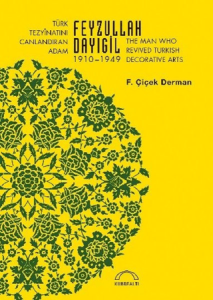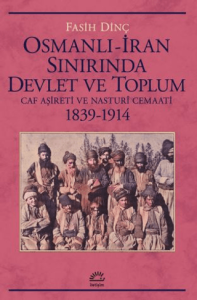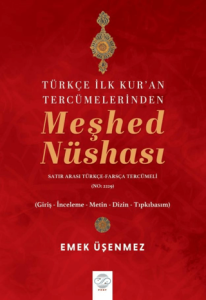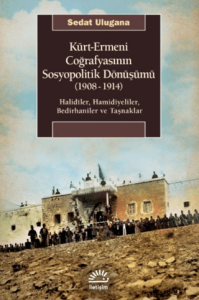9781860649585
182774

https://www.sahafium.com/kitap/turkey-a-modern-history-p182774.html
Turkey A Modern History
0.00
This substantially revised edition of Erik J. Zürcher's acclaimed and definitive histöry builds upon the themes of Turkey's continuing incorporation into the VVest and the modernization of its state and society. İt begins with the forging of closer links with Europe follovving the French Revolution, charts the fo.rtunes of the Ottoman Empire in the nineteenth century and offers a strongly revisionist interpretation of the role of Turkey's founding father, Kemal Atatürk.
İn exploring the post-1950 period the author focuses on issues such as the grovvth of mass politics; internal and external migration, military coups and Turkey's human rights record; the transition from statîsm to an export-oriented market economy, Turkey's ambivalent relations with the Middle East and Europe; the grovvth of Islamism; the Kurdish question and the contested nature of Turkish identity. Turkey's most recent history has been marked by momentous political transformation and the rapid evolution of ali aspects of its cultural, social, and economic life. The most significant of these is arguably the rise of political İslam - which has called into question the fundamental tenets of the Kemalist state -with the success of the Islamic VVelfare Party in the 1990S. Although that seemed to fit in with the trends in the Islamic vvorld, the most recent developments set Turkey apart. The moderately Islamic Justice and Development Party has emerged as the dominant force in Turkish politics and it is using its mandate to speed up the political and economic reforms that are needed to fulfill Turkey's long-standing ambition tojoin the European Union. At a time of continuing transformation in the region, this Standard work is essential reading for ali those concerned with modern Turkey and its foundations. '...a vaiuable addition to scholarly literatüre/ Andrevv Mango, 715 'exceptional!y well-written and offering a perspective that is unique in the field of Turkish studies.' Donald Quataert, State University ofNew York at Binghamton 'a very vaiuable book vvhich should interest a wide readership...as a text book it meets a very real need: there is no real rival.'
İn exploring the post-1950 period the author focuses on issues such as the grovvth of mass politics; internal and external migration, military coups and Turkey's human rights record; the transition from statîsm to an export-oriented market economy, Turkey's ambivalent relations with the Middle East and Europe; the grovvth of Islamism; the Kurdish question and the contested nature of Turkish identity. Turkey's most recent history has been marked by momentous political transformation and the rapid evolution of ali aspects of its cultural, social, and economic life. The most significant of these is arguably the rise of political İslam - which has called into question the fundamental tenets of the Kemalist state -with the success of the Islamic VVelfare Party in the 1990S. Although that seemed to fit in with the trends in the Islamic vvorld, the most recent developments set Turkey apart. The moderately Islamic Justice and Development Party has emerged as the dominant force in Turkish politics and it is using its mandate to speed up the political and economic reforms that are needed to fulfill Turkey's long-standing ambition tojoin the European Union. At a time of continuing transformation in the region, this Standard work is essential reading for ali those concerned with modern Turkey and its foundations. '...a vaiuable addition to scholarly literatüre/ Andrevv Mango, 715 'exceptional!y well-written and offering a perspective that is unique in the field of Turkish studies.' Donald Quataert, State University ofNew York at Binghamton 'a very vaiuable book vvhich should interest a wide readership...as a text book it meets a very real need: there is no real rival.'
This substantially revised edition of Erik J. Zürcher's acclaimed and definitive histöry builds upon the themes of Turkey's continuing incorporation into the VVest and the modernization of its state and society. İt begins with the forging of closer links with Europe follovving the French Revolution, charts the fo.rtunes of the Ottoman Empire in the nineteenth century and offers a strongly revisionist interpretation of the role of Turkey's founding father, Kemal Atatürk.
İn exploring the post-1950 period the author focuses on issues such as the grovvth of mass politics; internal and external migration, military coups and Turkey's human rights record; the transition from statîsm to an export-oriented market economy, Turkey's ambivalent relations with the Middle East and Europe; the grovvth of Islamism; the Kurdish question and the contested nature of Turkish identity. Turkey's most recent history has been marked by momentous political transformation and the rapid evolution of ali aspects of its cultural, social, and economic life. The most significant of these is arguably the rise of political İslam - which has called into question the fundamental tenets of the Kemalist state -with the success of the Islamic VVelfare Party in the 1990S. Although that seemed to fit in with the trends in the Islamic vvorld, the most recent developments set Turkey apart. The moderately Islamic Justice and Development Party has emerged as the dominant force in Turkish politics and it is using its mandate to speed up the political and economic reforms that are needed to fulfill Turkey's long-standing ambition tojoin the European Union. At a time of continuing transformation in the region, this Standard work is essential reading for ali those concerned with modern Turkey and its foundations. '...a vaiuable addition to scholarly literatüre/ Andrevv Mango, 715 'exceptional!y well-written and offering a perspective that is unique in the field of Turkish studies.' Donald Quataert, State University ofNew York at Binghamton 'a very vaiuable book vvhich should interest a wide readership...as a text book it meets a very real need: there is no real rival.'
İn exploring the post-1950 period the author focuses on issues such as the grovvth of mass politics; internal and external migration, military coups and Turkey's human rights record; the transition from statîsm to an export-oriented market economy, Turkey's ambivalent relations with the Middle East and Europe; the grovvth of Islamism; the Kurdish question and the contested nature of Turkish identity. Turkey's most recent history has been marked by momentous political transformation and the rapid evolution of ali aspects of its cultural, social, and economic life. The most significant of these is arguably the rise of political İslam - which has called into question the fundamental tenets of the Kemalist state -with the success of the Islamic VVelfare Party in the 1990S. Although that seemed to fit in with the trends in the Islamic vvorld, the most recent developments set Turkey apart. The moderately Islamic Justice and Development Party has emerged as the dominant force in Turkish politics and it is using its mandate to speed up the political and economic reforms that are needed to fulfill Turkey's long-standing ambition tojoin the European Union. At a time of continuing transformation in the region, this Standard work is essential reading for ali those concerned with modern Turkey and its foundations. '...a vaiuable addition to scholarly literatüre/ Andrevv Mango, 715 'exceptional!y well-written and offering a perspective that is unique in the field of Turkish studies.' Donald Quataert, State University ofNew York at Binghamton 'a very vaiuable book vvhich should interest a wide readership...as a text book it meets a very real need: there is no real rival.'
























